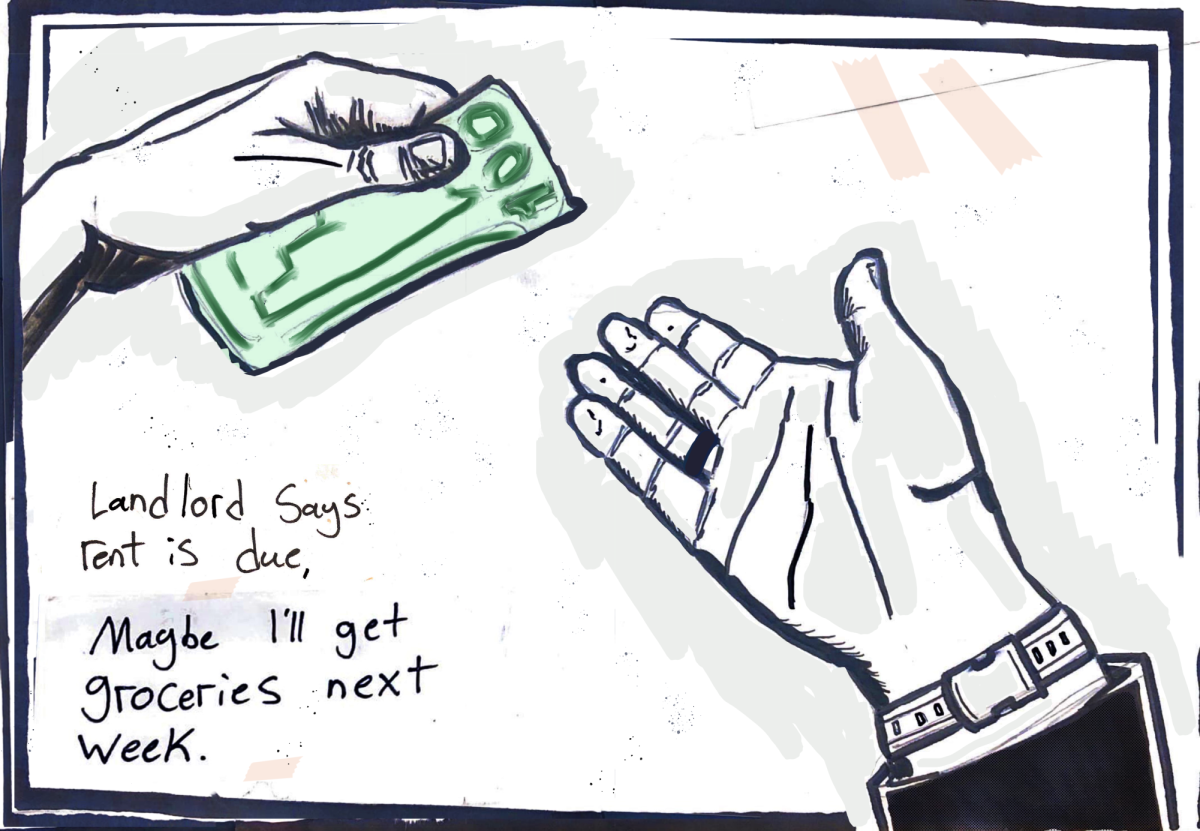It may come as no surprise to many, but right now, Utah “desperately needs” more affordable housing, said Tara Rollins, executive director of the Utah Housing Coalition.
“It’s costing us as a community much more money because of our inability to house firefighters, teachers [and other] major contributors to our community,” Rollins said.
In February 2023, Utah ranked 45th in the country when it came to affordable housing.
The need for affordable housing, for renters specifically, is also likely to continue to grow in the state because of the “high cost of homeownership, rising rental rates, and historically low vacancy rates,” according to a 2023 Kem C. Gardner Policy Institute study.
State Funding
The state has gotten more directly involved in funding the solutions in recent years — the 2023 legislative session ranks as the most productive for housing assistance ever, according to the same Gardner Policy Institute study.
James Wood, a co-author of the study, said this is important because, historically, the federal government has provided more funding to affordable housing programs than state governments.
“The state hasn’t gotten [more] involved in housing until recently — and Utah’s not alone, it’s true of most states,” Wood said.
In all, the Utah legislature passed six housing-related bills that attempt to tackle different sides of the affordable housing issue: “Providing assistance to the homeless, first-time homebuyers, low-income housing developers, and home builders,” Wood wrote in the study.
One of the bills passed increased Utah’s tax credits for low-income housing, which helps develop affordable units for extremely low-income renters.
In 2021, Utah’s available credit of $1.1 million ranked second-lowest among the 25 states with tax credit programs. Now, it’s been increased to $10 million annually, which aligns the Beehive State with most state tax credit programs.
Rollins said she’s already noticed this lead to more developers, investors and ambassadors wanting to do work in Utah. She added that the increased state funding is a “good start,” but it’s going to take time — and lots of additional solutions — to start seeing improvements in affordable housing.
‘Helping the renter’
Unless the state focuses more on how they’re allowing its rental industry to move forward, Rollins said housing affordability is still going to be a huge problem.
“We’ve allowed corporations to come in and purchase places,” Rollins said. “… They don’t have a commitment to our community like mom and pops used to have or even margin landlords that manage only their own properties.”
“With more corporate landlords and management companies coming into the state, they’re not only charging for rent but for parking, valet trash and lots of other fees,” Rollins said. “Unless we look at the rental industry, and how we’re allowing it to move forward, we’re not going to move the needle at all because people are going to become homeless; they’re going to [be] evicted.”
That’s on top of the historically high rent prices in the area, she added. In September 2022, a Kem C. Gardner Policy Institute study found the Wasatch Front experienced the same rental price growth in the past two years (2020-22) as the previous 10 years (2010-20).
Historically, the efforts to improve affordable housing in Utah have mostly addressed the supply side of the equation, said Wood, but he said it’s also important to prioritize programs that directly help the demand side — the renters and homebuyers.
“It’s terrific that we’re getting new units, we need them, but I’ll tell you, we’re never going to build ourselves out of this crisis — you just can’t build enough units,” Wood said.
Wood added it’s important to help these people through eviction prevention programs to avoid the high cost of being evicted, as well as prioritize rental assistance programs and housing voucher programs.
“That’s really important because it’s immediate, it’s effective and you can reach the most vulnerable in the most expedient way,” Wood said.
But the problem with these programs to politicians and policymakers, he added, is that they’re ongoing, so it requires helping households on a yearly basis.
“That’s why building is so attractive — it’s one shot, if they got money this year, it’s like, ‘Bam, let’s do a new project,’” Wood said. “They tie a blue ribbon around it and cut it and show that they’ve helped affordable housing — which they have — but there’s two sides to the equation.”
Rollins emphasized the issue of affordable housing is very complex, but the increased awareness and focus on finding solutions in the state in recent years gives her hope.
“[Utah] has done a lot of incredible things in terms of having a better understanding of the movement of their people,” Rollins said. “We have so many more people under the tent, talking about it in a way I’ve never seen before and that’s what gives me hope.”















Elijah Gregory • Oct 10, 2023 at 4:47 am
“It’s terrific that we’re getting new units, we need them, but I’ll tell you, we’re never going to build ourselves out of this crisis — you just can’t build enough units,” Wood said.
It’s not as if the number of houses built and home prices are exactly correlated in Utah. We see a sudden, severe spike in housing prices the years *after* the largest building boom in the history of the state?
The solution is going to be a combination of employers paying higher salaries and wages, along with landlords and sellers tamping down their impulse to make even larger gains on real estate investments.
Lee Hales • Oct 9, 2023 at 3:59 pm
The problem is with the utah low-income tax credits is that landlords are allowed to harass, threaten, intimate and lie, without any Consequences. Allow tenants to go without any heat or hot water over the winter, and when you bring it up to the people over the Tax credit in Utah (section 42) they do not investigate and believe the lies.landlords allow drugs, and criminals activity to go one and when you bring up the concern, then you are the problem. Here in utah tenants have no rights and the landlords have all rights, even when landlords are doing wrong. That needs to change and the programs that are supposed to help with these issues are not willing to and it puts lots of people on the streets that are disabled